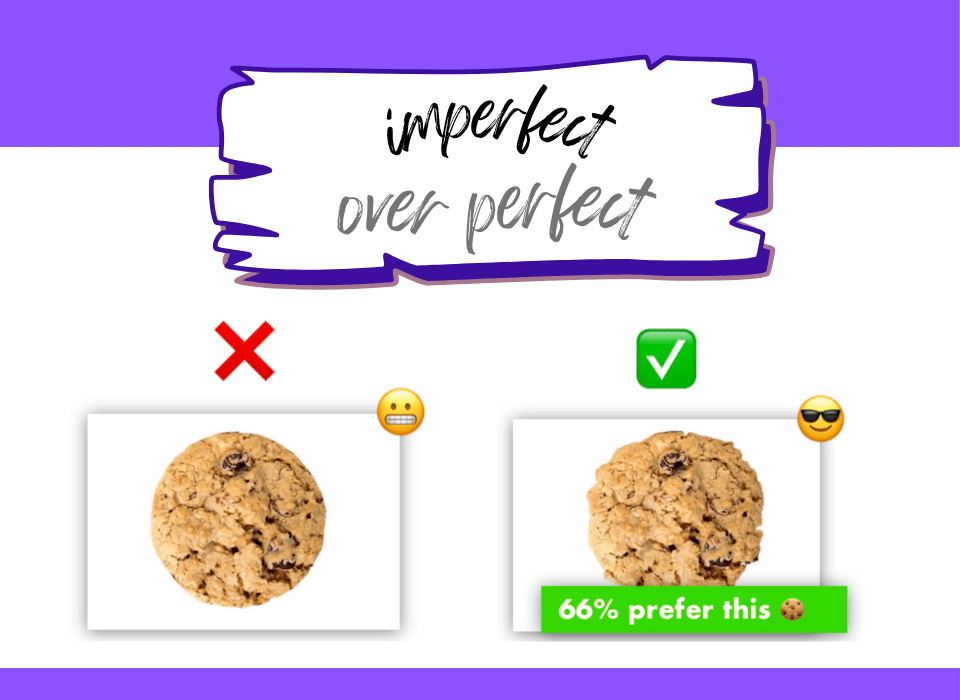Being Flawed is the New Perfection
Why imperfection is the secret to real connection in a world perfected by AI
AI just made perfection free. But what happens when perfection becomes so accessible, it loses all meaning?
Last week's newly released Google's Veo3 generates flawless faces and voices in seconds. Perfect symmetry. Pristine smiles. Flawless pronunciation. (see one I generated below)
But psychology research proves the opposite of what you'd expect.
The science behind strategic imperfection
Research shows that competent people who make small mistakes are more likable than those who stay perfect. This is called the "pratfall effect".
When psychologist Elliot Aronson had students listen to quiz contestants, the smart contestant who spilled coffee became significantly more likable than the one who never stumbled.
Why? Vulnerability signals authenticity. Flaws make competence approachable.
In the movie Fifty Shades of Grey, Anastasia literally trips during her first meeting with Christian Grey. That clumsy moment became a defining scene because it made her relatable.

My networking wake-up call
When I moved to San Francisco, I perfected my elevator pitch. Thirty seconds of polished talking points about why I relocated, what I do, and how everything was amazing.
Professional. Efficient. Completely forgettable.
But one evening taught me something different. Jet-lagged and tired, I went off script at a networking event.
Instead of my rehearsed success story, I shared real struggles. The culture shock of SF after NYC. The weird reality of restaurants closing at 8pm (seriously?). How I was still figuring out this new city.
The entire dynamic flipped. It turns out, they had their own relocation story. We bonded over shared struggles instead of shared successes. We became real friends, not just LinkedIn adds.
That one evening taught me something I hadn't expected: vulnerability creates deeper connections than perfection ever could.
Why smart brands are embracing flaws
The best marketers already know this secret.
KFC's chicken crisis: When they ran out of chicken in the UK, they rearranged their logo to "FCK" and said "We're sorry." The campaign went viral, turning disaster into PR gold.
Oatly's honest positioning: They admit their oat milk doesn't taste as good as regular milk but win on ingredients and sustainability. Their ads literally say "this tastes like sh*t! blah", turning their weakness into memorable brand positioning.

These campaigns worked because they told the truth about their flaws instead of hiding them.
Famous researcher Brené Brown argues that authentic leaders who admit mistakes create deeper trust than those who project false perfection.
My prediction: Being flawed becomes the new perfection
This goes beyond psychology. It's the new business reality.
AI made perfection worthless and authenticity priceless. Companies that understand this will dominate. Those that don't will compete with machines and lose.
Here's how to apply this today:
In your next presentation: Don't fret about little "ums" or pauses - they make you human. Share one specific challenge you're working through, not just polished outcomes. Watch how engagement changes.
In your marketing: Show real customers with real stories. Instead of scripted testimonials, why not try creating video reactions from customers with genuine reactions (including those pauses and authentic emotions). They feel more relatable than polished case studies.
In your leadership: Admit when you don't know something. Say "I was wrong" instead of deflecting. Your team will trust you more, not less.
In your networking: Share one genuine struggle (whether big or small) alongside your successes. Watch conversations transform from transactional to meaningful.
While everyone else chases synthetic perfection, we have a choice. We can join the race to be flawlessly forgettable. Or we can embrace the one thing AI can't replicate: authentic imperfection.
Here’s the beautiful irony: the more flawless machines become, the more valuable our flaws become.



